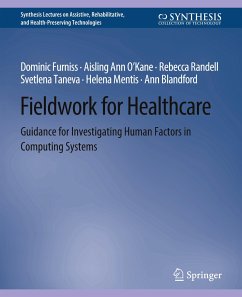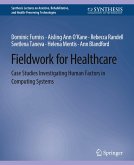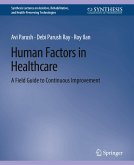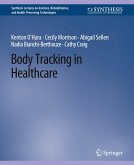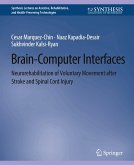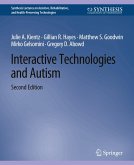Conducting fieldwork for investigating technology use in healthcare is a challenging undertaking, and yet there is little in the way of community support and guidance for conducting these studies. There is a need for better knowledge sharing and resources to facilitate learning. This is the second of two volumes designed as a collective graduate guidebook for conducting fieldwork in healthcare. This volume brings together thematic chapters that draw out issues and lessons learned from practical experience. Researchers who have first-hand experience of conducting healthcare fieldwork collaborated to write these chapters. This volume contains insights, tips, and tricks from studies in clinical and non-clinical environments, from hospital to home. This volume starts with an introduction to the ethics and governance procedures a researcher might encounter when conducting fieldwork in this sensitive study area. Subsequent chapters address specific aspects of conducting situated healthcare research. Chapters on readying the researcher and relationships in the medical domain break down some of the complex social aspects of this type of research. They are followed by chapters on the practicalities of collecting data and implementing interventions, which focus on domain-specific issues that may arise. Finally, we close the volume by discussing the management of impact in healthcare fieldwork. The guidance contained in these chapters enables new researchers to form their project plans and also their contingency plans in this complex and challenging domain. For more experienced researchers, it offers advice and support through familiar stories and experiences. For supervisors and teachers, it offers a source of reference and debate. Together with the first volume, Fieldwork for Healthcare: Case Studies Investigating Human Factors in Computing systems, these books provide a substantive resource on how to conduct fieldwork in healthcare. Table of Contents: Preface / Acknowledgments / Ethics, Governance, and Patient and Public Involvement in Healthcare / Readying the Researcher for Fieldwork in Healthcare / Establishing and Maintaining Relationships in Healthcare Fields / Practicalities of Data Collection in Healthcare Fieldwork / Healthcare Intervention Studies "In the Wild" / Impact of Fieldwork in Healthcare: Understanding Impact on Researchers, Research, Practice, and Beyond / References / Biographies
Bitte wählen Sie Ihr Anliegen aus.
Rechnungen
Retourenschein anfordern
Bestellstatus
Storno

